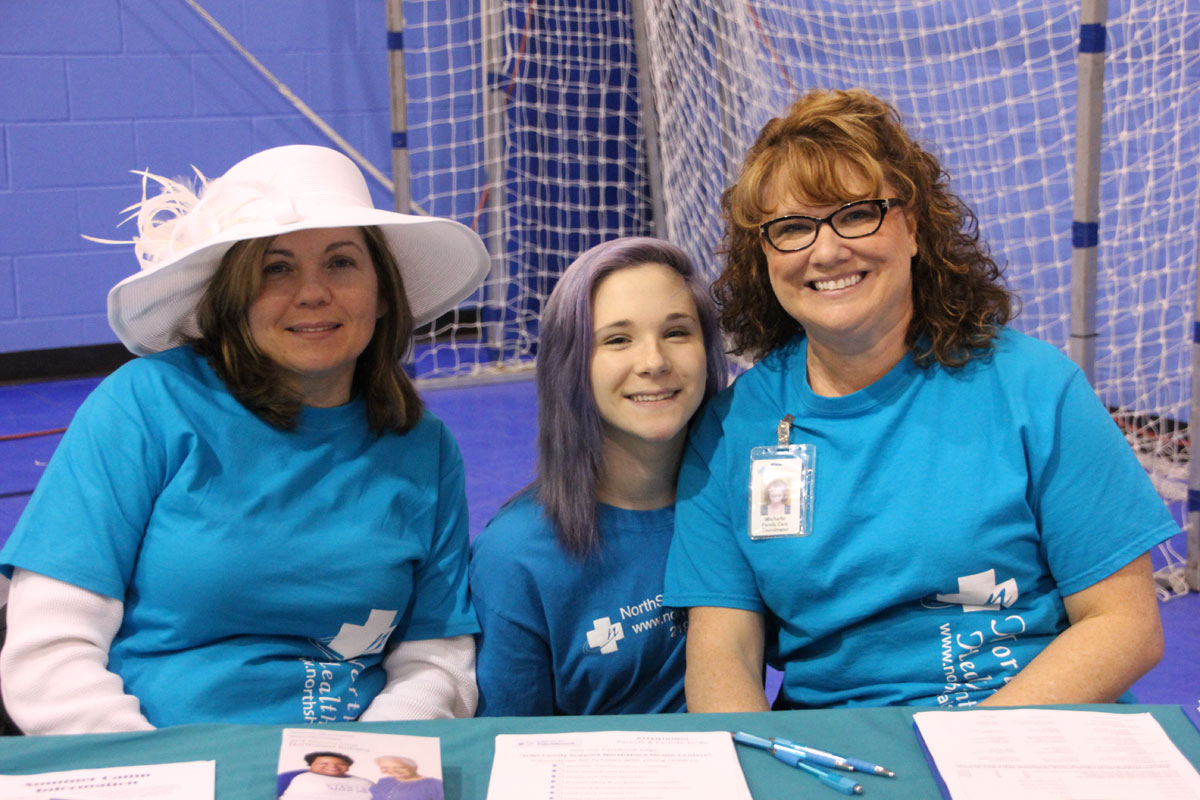The goal of NorthShore Health Centers’ Prenatal & Family Care Coordination Program begins with the initiative of providing pregnant women with the educational foundation that is so important to their pregnancy by promoting early intervention, reducing preterm deliveries, low-birth weight infants and infant deaths, and having a positive pregnancy outcome.
After birth, NorthShore’s mission is to provide parents and guardians with education on how to best care for their family through learning about health/wellness, child development, nutrition, safety, parenting and access to resources and services that address the families’ unmet social services and medical needs.
“Family Care grew out of the success of our Prenatal Program,” said Michelle Higel, NorthShore Lead Family Care Coordinator. “When ‘Prenatal’ (program) grew and it was really revamped and expanded, and became much stronger as a program, we found that family care was falling behind and we saw a bigger drop off rate.”
“Continuing in the program was a challenge for moms but after we revamped the program we’re seeing moms continue, and we’re having a larger number of graduates so it’s worked,” said Higel.
Babies graduate from the Family Care Program at age one, but coordinators, like Higel, will continue to be in contact with families until age two.
“It’s kind of a nice transition and if we find that they do need more support then there are programs that we will refer them to such as Head Start and Early Head Start that go to age five,” said Higel. “At that point it shifts from healthcare more toward education and academics where they’re getting ready for kindergarten and pre-kindergarten readiness.”
The preferred method for Higel and her team to administer care is through home visits but NorthShore is flexible and will see moms during office visits or out at events, which Prenatal/Family Care hold regularly.
“It’s a very flexible program which is a key difference from some other programs that exist which require you to have a number of visits or you’re discharged,” said Higel. “We can be very flexible in meeting the families where they are at and build it from there.”
“Each family needs something different,” continued Higel. “Some families are lacking family close by or friends with kids so they really like coming to the events and learning more about child development. And a family that is more involved in the community tends to be healthier and more engaged.”
While NorthShore events are always fun, the educational outreach, and instilling confidence and self-reliance, is a fundamental component that is highlighted in every event that Higel and the Family Care Program hosts.
“They aren’t going to come unless it’s going to be fun but they have learned that when they come to our events that there is going to be education, whether it’s based on nutrition, safety or child development. We are going to find out if there are any needs that we need to help meet.”
“Our ultimate goal is that by the time a mom graduates is that she knows where to go to find any resources that she might need,” Higel said. “I want them to feel confident that she can find those resources on her own and we really want to foster that independency of being able to take care of their family. I think that’s very important so that the next time she finds herself in a situation she has the confidence to go out there and find whatever she needs.”
Some statistics that illustrate how well the program is working and how involved families are with NorthShore Health Centers’ Family Care Program:
Of the 98 families that are enrolled in the program in Porter County, 99% are up to date with Well-Child Checkups, 95% up to date with immunizations, 71% have had their first dental exam between 12-15 months of age, 100% have had their screenings and 99% have access to healthcare coverage.
“Those numbers are really incredible,” Higel said, enthusiastically. “They really are. It shows that the program really does work and that the families do respond to the education and the support. And it’s all preventive health care so we’re keeping the kids from getting sick and having health care issues that will impact them for the rest of their life.”


